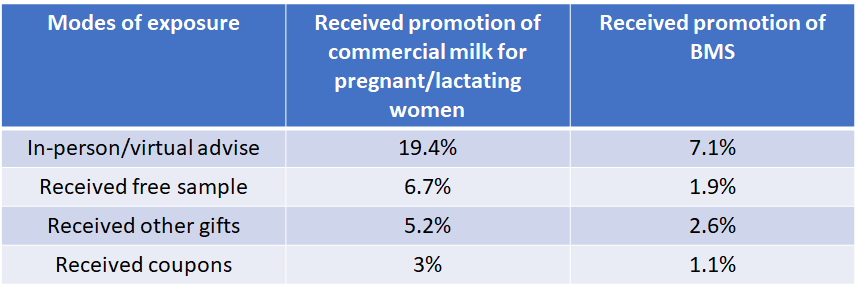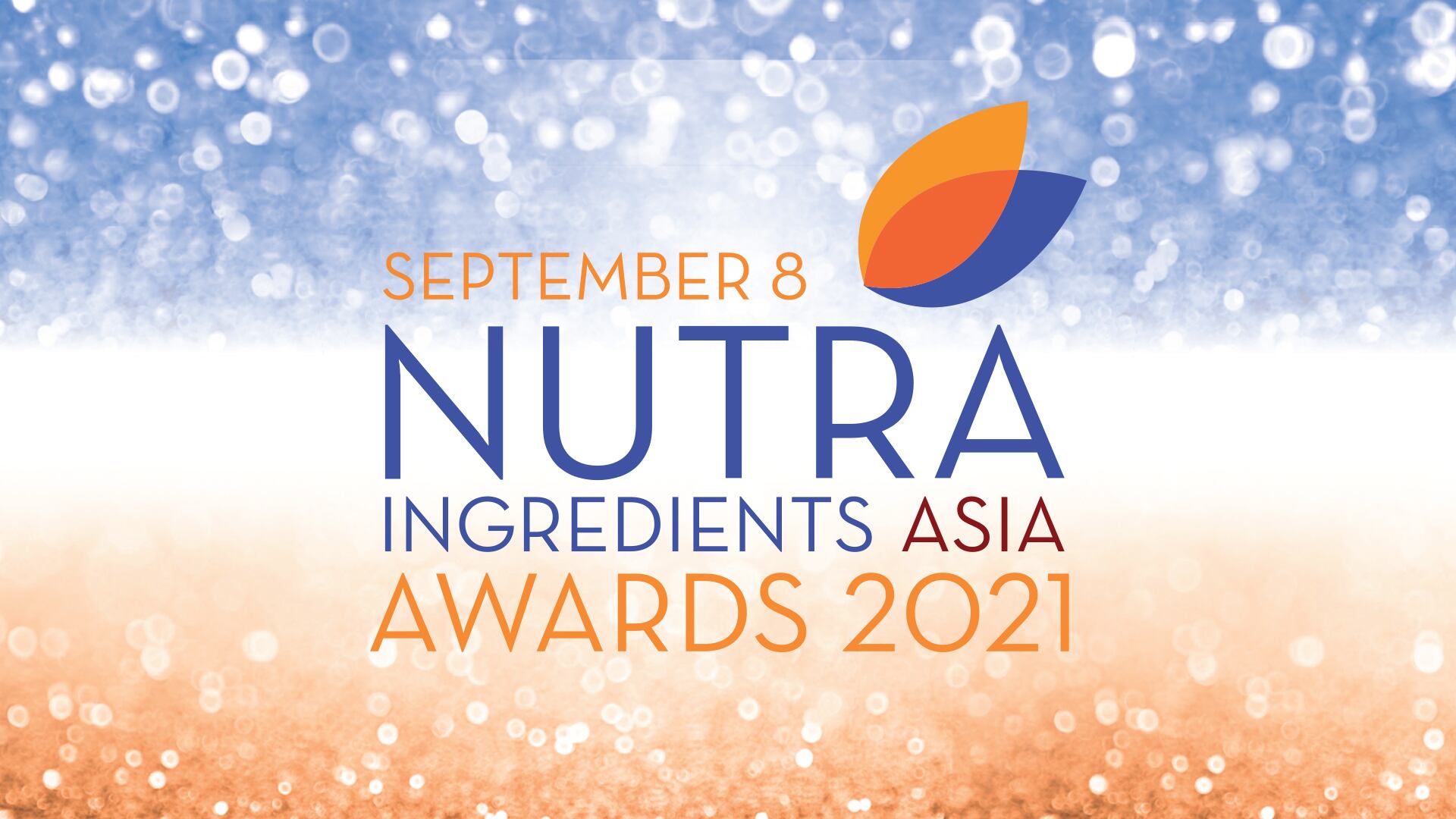In Vietnam, national legislations that restrict infant formula promotion has been passed down in recent years.
In 2012, the National Assembly passed the Law on Advertisement to prohibit the advertisement of BMS for children under 24 months old, complementary foods for children under six months old, and feeding bottles and pacifiers.
In 2014, the prime minister approved the guiding Government Decree 100 on the marketing and use of nutritional products for young children, feeding bottles, teats, and pacifiers.
On top of these, there is also the International Code of Marketing of Breastmilk Substitutes (the Code) adopted by the World Health Assembly in place.
The Code prohibits all forms of promotion of breastmilk substitutes, including advertising, gifts to health workers, and the distribution of free samples. It also prohibits marketing personnel from having direct or indirect contact of any kind with pregnant women or mothers of infants and young children.
Using data from a survey conducted between May and July last year, researchers claim that BMS companies have been circumventing the above restrictions by promoting commercial milk for pregnant and lactating mothers (CMF-PW) – as a first step to reach out to the mothers.
“The BMS industry uses commercial milk for pregnant and lactating mothers as an entry point for accessing women and promoting BMS, justifying the presence of representatives in health facilities by promoting products that are not regulated by the Code.
“Promotion of CMF-PW is being used as an entry point for BMS promotion, as a part of a comprehensive strategy to build brand loyalty, cross-promote products, and drive sales across the life cycle—‘womb-to-tomb’, and across generations,” the researchers wrote in their paper published on Nutrients.
Although promotion of CMF-PW is not regulated by the Code, it is however, inappropriate according to the Vietnamese law.
Citing Article 12.2.c in Decree 100, the researchers pointed out that the BMS industry representatives are prohibited from having contact with women in health facilities, regardless of what specific product they are promoting and whether it is covered within the scope of the Code.
The survey involved 268 pregnant women and 726 mothers with infants aged 0 to 11 months. The respondents came from either the Ho Chi Minh City, the industrial province of Binh Duong, or the increasingly industrialised province of Bac Ninh.
In-depth interviews with 39 women, consisting of nine pregnant women and 30 mothers of infants were also conducted.
In addition, the researchers also interviewed nine policy makers, three media executives, and 19 health workers.
The research was supported by the Bill and Melinda Gates Foundation and Irish Aid.
Weight control, social media
Promoting commercial milk for weight control on social media is one of the key methods BMS companies reach out to pregnant women.
“The BMS industry reportedly also uses social media to deliver tailored messages to market CMF-PW, leveraging women’s concerns for weight control.
“The information and advice were delivered in such a way that it was not perceived to be an advertisement, making them more likely to try the product,” the researchers said.
Other exposures
Based on the survey results, the most common mode of exposure to the promotion of commercial milk for pregnant and lactating women or BMS, was via in-person or virtual recommendations.
Amongst the pregnant women, 19.4 per cent said they received in-person or virtual recommendations for commercial milk for pregnant and lactating women in the 30 days prior to answering the survey.
There were also 7.1 per cent who said they received recommendations for BMS.
The BMS industry representatives typically approached them during antenatal care visits at health facilities for personal information (16 per cent), giving information on breastmilk substitutes (15.3 per cent), or both (13 per cent).
Modes of exposure amongst 268 pregnant women

“Qualitative interviews with mothers and pregnant women reinforced the finding that BMS industry representatives approach pregnant mothers in hospitals, particularly while they are waiting for antenatal care visits.
“These representatives then obtain contact information (e.g., telephone number and account names on social media platforms such as Facebook and Zalo) and take photos or scan barcodes of women’s health record books in order to follow-up with women to promote BMS,” the researchers said.
“Interviews indicated that mothers were also approached by shops and BMS industry representatives after birth, using their contact given during pregnancy.
“After discharge from the hospital, BMS industry representatives keep in frequent contact with mothers to inform them about promotional campaigns or to push further sales," the researchers said.
In fact, the researchers also found that a director of a milk trading company has used a digital system to “estimate the average time it takes for an infant to consume all the formula milk purchased, which then drives the timing of advertisements and promotions.”
Similarly, amongst mothers with infants, in-person advice or recommendation of BMS was also the most common mode of exposure.
Interestingly, those with infants between six and 11 months old were more likely to be exposed to promotions and marketing of BMS.
Modes of exposure to BMS marketing amongst 726 mothers with infants

Cultural, societal pressure
On the other hand, there was also cultural and societal pressure to prepare BMS at the time of birth or to feed the babies when they do not “look plump enough”.
“For example, if they observed other infants in the neighbourhood to be noticeably plump, they would ask their parents about which formula milk brand the baby was being fed. Mothers also reported pressure from family members to feed their infants with BMS,” said the researchers.
In fact, over two in five said they have brought their own BMS to the hospital before giving birth. A reason was due to the fear of not being able to produce enough breastmilk.
Three in 10 said they bought BMS within or nearby the maternity facility. Only one in 10 did not bring or purchase BMS.
“In-depth interviews with mothers indicated that they have concerns about breastmilk supply in the first days after birth.
“As a result, the practice of bringing BMS with them to the hospital at the time of birth or buying it at shops near the hospital is common. This norm was reinforced by the availability of BMS within and nearby maternity facilities and health workers’ advice,” the researchers said.
While BMS companies were the most common group of people promoting either commercial milk for pregnant or lactating women or infant formula, pharmacies, spouse/partner, relative, and friends have also encouraged pregnant women to purchase BMS.
Health workers
On the other hand, the researchers said that interviews with the health workers showed that the BMS industry had reduced their contact with staff in the obstetrics and paediatrics departments in recent years.
This was because they have been refused access by department heads and hospital leaders.
However, some health workers did not provide adequate breastfeeding support and encouraged the use of BMS in health facilities.
Some former hospital staff were also recruited by the BMS companies to work as sales agents – because they know where and when to best access mothers.
The promotion of BMS or commercial milk for pregnant or lactating women was also more common in private hospital as compared to public hospital.
This could be because private hospitals are not incentivised to comply with the code.
In conclusion, the researchers said that Vietnam has a strong regulatory environment for the protection and promotion of breastfeeding, but stronger enforcement of national policies was required to mitigate enforcement gaps in both public and private hospitals.
Source: Nutrients
Implementation of the Code of Marketing of Breast-Milk Substitutes in Vietnam: Marketing Practices by the Industry and Perceptions of Caregivers and Health Workers
https://doi.org/10.3390/nu13082884
Authors: Nguyen, Tuan T et al





